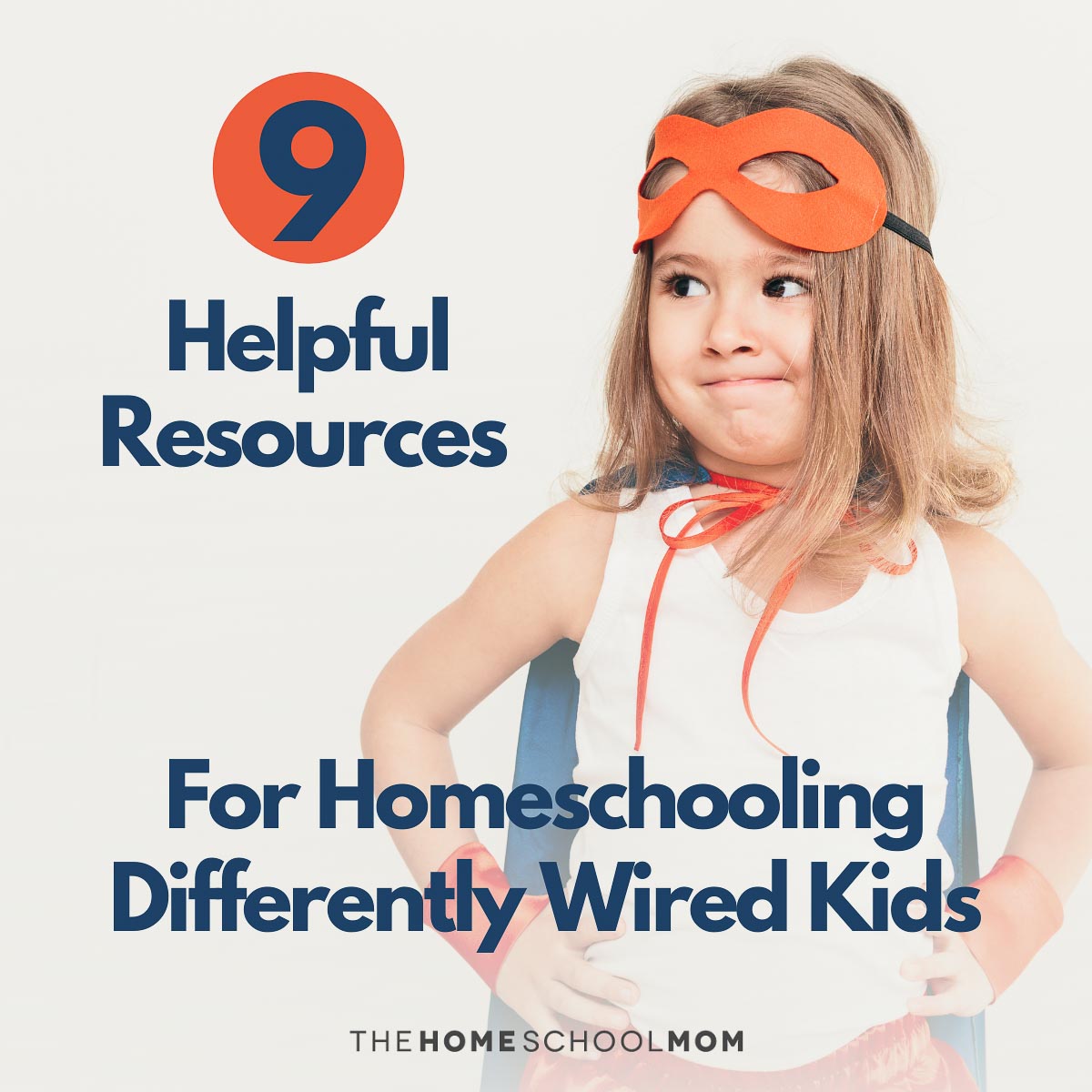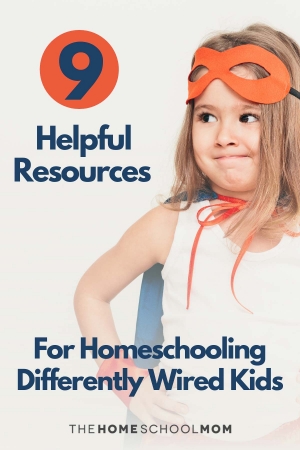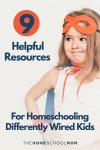I first heard the term "differently wired" a few years ago when I came across the work of Deborah Reber, the founder of the Tilt Parenting community, podcast, and author of the book, Differently Wired. The concept sparked my interest and had me nodding my head as I continued to research. I knew one of my kids fit this description and I had been at a loss—even after evaluations, recommendations, and hours of researching.

What does differently wired mean?
I came across this definition that Deborah Reber used in her post "Is my child differently wired?"
I use the [term] differently wired to describe kids who are moving through the world in a less typical way. This catchall phrase includes children with everything from ADHD or learning disabilities like dyslexia to children who are gifted, autistic, or highly sensitive."
Deborah goes on to say,
And while differently wired isn’t a formal diagnostic term, it has resonated with many people because it has a positive connotation, while also explaining differences and embracing uniqueness, which is important when we consider that being 'atypical' is more normal than most people realize. In fact, at least one in five people today is in some way differently wired."
It was her positive insight that helped me take a deep breath and search for supportive groups, books, podcasts, and other resources. And while everyone has their own opinion on labels, testing, diets, education, and therapies, educating yourself is important.
Each differently wired child is different in their own special way. Below, I've gathered the materials that I've found helpful for homeschooling and parenting. All items are linked so you can explore them in full detail at your leisure.
My Top 9 Resources for Homeschooling Differently Wired Kids
What can I say about Shawna of Different By Design Learning? I came across her website on recommendation from a friend a few years ago. I read one blog post. Then another. Then another.
By the time I was finished, I was tearing up and writing this woman, a stranger at the time, a long email. Yes, I do this sometimes. Fast forward, we connected online (thank you Instagram) and the rest is history.
Shawna's experience is hard to match. Her writing, her daily life with her two amazing sons, her sense of humor, and her insight and guidance are desperately needed in the homeschool world. Shawna's books are filled with easy-to-do ideas, encouragement, and resources. She also offers parent coaching, which I found very helpful.
I remember seeing Kirk and his son, Casey, for the first time back in 2012 at a small church. They gave a high-energy, funny, and helpful parent presentation. This was not an ordinary presentation. Nope.
Kirk called out parents and challenged us to look at our behavior before we tried to correct and fix our child's behavior. He flipped so many parenting paradigms on their head. He celebrated children with high-energy, challenging kids in the best way possible.
His podcast is not to be missed—it's short and sweet and to the point. His programs are detailed, useful, and will leave you encouraged. You will see your child in a new light. If you have the chance to see Kirk and Casey in person, I highly recommend this father-son team.
Colleen Kessler is a mother of four, author, speaker, and gifted education specialist. I found her via another online friend (are you sensing a pattern here?) and find her blog posts and her podcast to be quite helpful.
Colleen is in the trenches of motherhood and homeschooling different wired kids. She is down-to-earth and warm. Colleen shares wonderful, hands-on ideas to help to make your homeschool days fun and educational while honoring your amazing kids.
The resources Deborah Reber has created via Tilt Parenting are truly remarkable. She has devoted so much time breaking down stereotypes of differently wired kids and her ability to reach families is remarkable. Her book and podcast are two of my favorite places to go when I need information and inspiration.

If you have a child who struggles with anxiety (in any form), the articles on Hey, Sigmund are very insightful.
We enjoyed the book Hey Warrior (affiliate link), and it's written for kids. Karen Young, the creator, is based in Australia and created this online resource "to provide contemporary, research-driven information on the art of being human, and being with humans."

Dr. Ross Greene has an extensive career, but it was his book, The Explosive Child, that really helped me understand how and why my child was struggling with volatile emotions and how I could meet him where he was, help him, and help our family. His website includes his other books, research, training, and workshops.
Dr. Greene advocates "going upstream" to turn around frustrating experiences in parent-child relationships, which Jeanne blogs about in her post "Homeschool Problem Red Flags: Resistance and Resentment."

This book came recommended by a friend a long time ago and was my first foray into sensory processing differences. The author details what the condition is, how it can manifest and has been translated into many foreign languages. This book opened my eyes and helped me help my child and was a springboard into my own research. Carol Stock Kranowitz is an international speaker and author of multiple books.
I adore Cait, the creator of My Little Poppies. She is a former school psychologist, mother of three, and part of The Homeschool Sisters podcast duo. Cait guides families with out-of-box and differently wired learners with hands-on activities, her "lazy" unit studies, and her famous GAMESCHOOLING approach. You'll find tons of ideas on her website and within her Facebook community. Cait's warmth and real-life stories are sure to make you smile and give you the confidence to homeschool in a way that works for your kid.
This is an online program for kids ages 5-15 that helps promote emotional wellbeing. Anxiety, resilience, OCD, and procrastination are just a few of the programs that are available for families and schools.
The programs are self-paced and can be done with the parent or just the child (depending on their age). Their helpful printables and newsletter are great for parents. Kids will enjoy the characters and graphics and be encouraged to try the ideas presented in the various modules.
I hope these resources are helpful on your journey. We are lucky to live in a time where books, podcasts, online conferences, and groups are plentiful. You can find what works for you and your child and leave the rest. You know your amazing child best. Enjoy them!




 Vanessa is a homeschooling mama to three inquisitive, creative and often loud teens. Vanessa is a writer, speaker, and a life coach for mothers of pre-teens and teens. She guides them in creating sustainable self-care practices so they can discover their purpose and passions. You can find her on Instagram at
Vanessa is a homeschooling mama to three inquisitive, creative and often loud teens. Vanessa is a writer, speaker, and a life coach for mothers of pre-teens and teens. She guides them in creating sustainable self-care practices so they can discover their purpose and passions. You can find her on Instagram at 
Leave a Reply